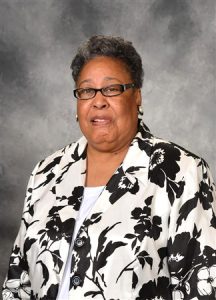It’s been 50 years since the assassination of Martin Luther King Jr., and Clara Ester still describes the experience as “almost unspeakable.”
Ester, now a retired deaconess of the United Methodist Church, was a college student and activist for the sanitation workers strike in 1968. She was outside the Lorraine Motel in Memphis when King was fatally shot.
“I witnessed him being lifted up and thrown back,” she said. “I cannot figure out how I managed to do it, but I took off and ran up a flight of stairs and stepped over his body and tried to get a pulse. I couldn’t.”

At 2 p.m. Wed., Aug. 15, in the Hall of Philosophy, Ester will reflect on the enduring impact of this experience through her lecture, “Spirituality, Advocacy and Activism: an MLK-Inspired Life,” presented in conversation with the Rt. Rev. V. Gene Robinson, Chautauqua’s vice president of religion. Ester’s lecture is part of the Week Eight interfaith theme, “Not to be Forgotten: A Remembrance on Dr. Martin Luther King Jr.” Ester will be lecturing instead of Ruby Nell Sales who, due to health issues, was unable to be at Chautauqua.
In the years following King’s death, Ester said she could not discuss her experience.
“Nobody pressured me for years,” she said. “Even when I speak of it today, it kind of tears me up on the inside because of who he was and what he was doing. For him to be taken away was so hard.”
Ester, one of the founders of People United to Advance the Dream, turned her pain into activism. After graduating from college in 1969, she joined the United Methodist Church Women’s national organization. She was stationed in Mobile, Alabama, where she worked through the Dumas Wesley Community Center in the distressed area of Crichton, which was predominantly African-American.
Ester fought for more programs that benefit African-American community members and helped transform the neighborhood. The DWCC continues to serve the Crichton community through resources like transitional housing and the After School Achievement Program. In 2017, 95 percent of the clientele were minority families in Crichton.
Through her work with the sanitation workers strike and the DWCC, Ester said she never forgot King’s mission.
“I have stayed engaged,” she said. “He’s gone, but his dream is still with us because that dream is still so alive. We still have to get on the battlefield and do the necessary things we need to do to make this a better world.”
Ester was born in Memphis in 1947, before the Brown v. Board of Education decision, and said it is undeniable that progress has transpired. She said racism is vocalized less in modern society — though that does not translate to complete equality.
“I come from a city where I know the Ku Klux Klan (members) are still alive, and I know they raise their children that way,” she said. “But now, we don’t hear or see from their actions like we used to.”
In terms of digression, Ester said she has seen an increased presence of hatred across political and social institutions.
“Now we are back at a point (where) we are not hesitant to say that we hate, and we are not hesitant to (commit) hate crimes,” she said. “That’s the kind of hate I thought would go away, but I guess it doesn’t go away until it dies.”




